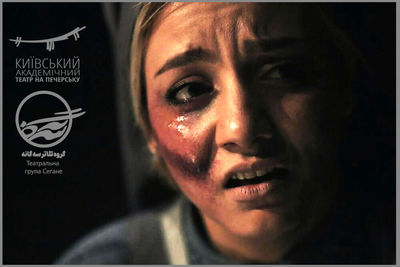The plays were written by Ali Safari who will also direct “Women’s Auschwitz” in the Ukrainian capital.
“Holodomor” will be directed by Raha Hajizeinal, who staged the play at Tehran’s Neauphle-le-Chateau Theater in February with a cast composed of Sarina Azad-Milani, Farshad Ayyubi, Mohammad Pasandideh, Tima Taqizadeh, Farzaneh Seiri, Ahu Shafiei, Milad Salehvand, Mehdi Abbasi, Nika Qasemi, Atefeh Musavi and Alireza Valipur.
This play is the final part of a trilogy, which has been produced by Safari and Hajizeinal about World War II.
“Women’s Auschwitz” and “Berlin 10:10” were other parts of the set, which were performed by the group in 2019 and 2020.
“Women’s Auschwitz” is about women in the Auschwitz concentration camp operated by Nazi Germany in occupied Poland during World War II and the Holocaust.
“Berlin 10:10” centers on the event that occurred one minute before the outbreak of WWII.
The word Holodomor literally translated from Ukrainian means “killing by starvation”. The term Holodomor emphasizes the famine’s man-made and intentional aspects such as rejection of outside aid, confiscation of all household foodstuffs and restriction of population movement.
As part of the wider Soviet famine of 1932–33, which affected the major grain-producing areas of the country, millions of inhabitants of Ukraine, the majority of whom were ethnic Ukrainians, died of starvation in a peacetime catastrophe unprecedented in the history of Ukraine.
Since 2006, the Holodomor has been recognized by Ukraine and 15 other countries as a genocide of the Ukrainian people carried out by the Soviet government.
Some scholars believe that the famine was planned by Joseph Stalin to eliminate a Ukrainian independence movement.
Serhii Burdyliak, Ukraine’s ambassador to Iran, and a number of his colleagues attended a performance of “Holodomor” in February, inviting the troupe to perform the play in Kiev.
Source:Tehran Times

